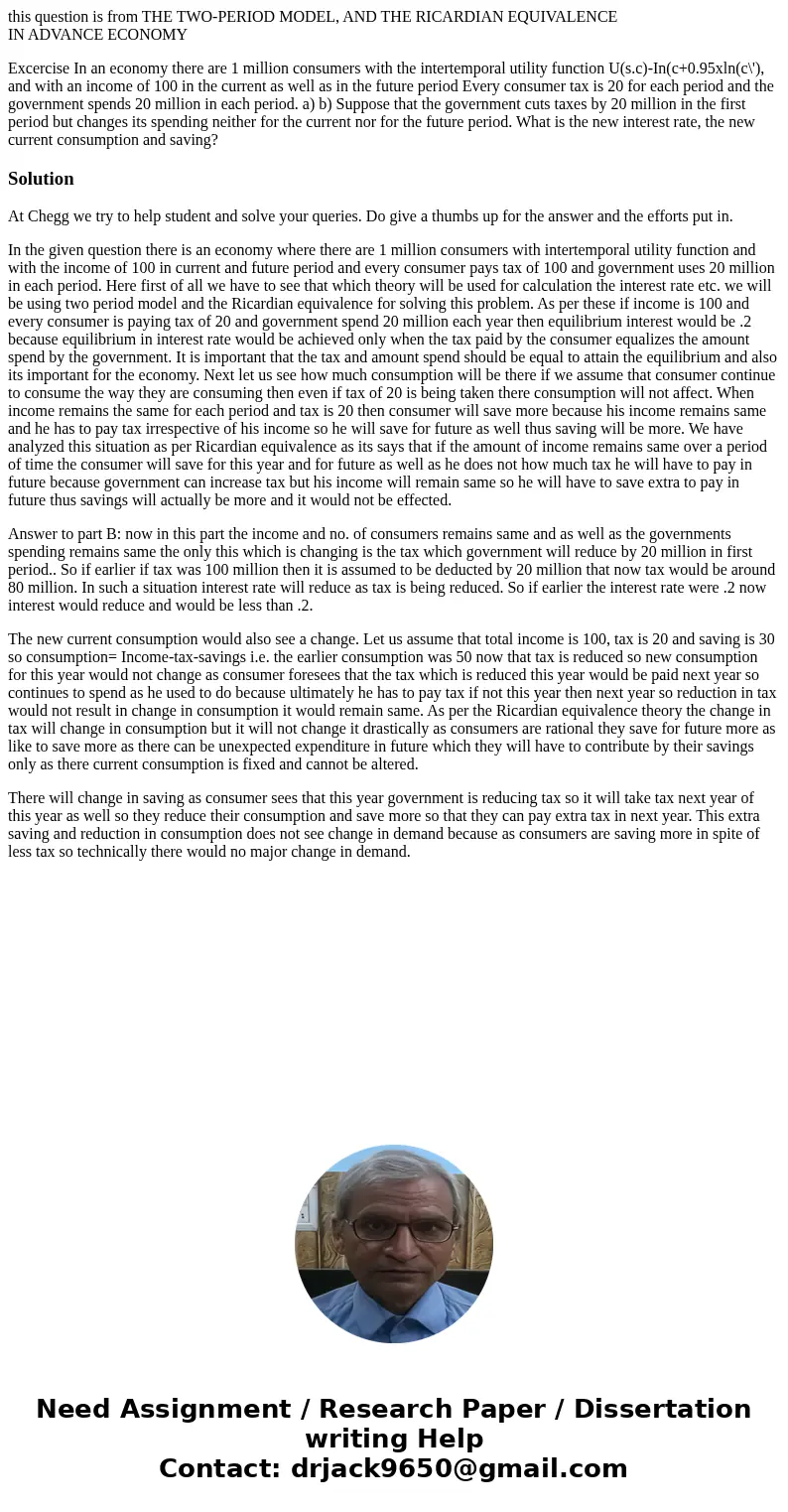this question is from THE TWOPERIOD MODEL AND THE RICARDIAN
this question is from THE TWO-PERIOD MODEL, AND THE RICARDIAN EQUIVALENCE
IN ADVANCE ECONOMY
Solution
At Chegg we try to help student and solve your queries. Do give a thumbs up for the answer and the efforts put in.
In the given question there is an economy where there are 1 million consumers with intertemporal utility function and with the income of 100 in current and future period and every consumer pays tax of 100 and government uses 20 million in each period. Here first of all we have to see that which theory will be used for calculation the interest rate etc. we will be using two period model and the Ricardian equivalence for solving this problem. As per these if income is 100 and every consumer is paying tax of 20 and government spend 20 million each year then equilibrium interest would be .2 because equilibrium in interest rate would be achieved only when the tax paid by the consumer equalizes the amount spend by the government. It is important that the tax and amount spend should be equal to attain the equilibrium and also its important for the economy. Next let us see how much consumption will be there if we assume that consumer continue to consume the way they are consuming then even if tax of 20 is being taken there consumption will not affect. When income remains the same for each period and tax is 20 then consumer will save more because his income remains same and he has to pay tax irrespective of his income so he will save for future as well thus saving will be more. We have analyzed this situation as per Ricardian equivalence as its says that if the amount of income remains same over a period of time the consumer will save for this year and for future as well as he does not how much tax he will have to pay in future because government can increase tax but his income will remain same so he will have to save extra to pay in future thus savings will actually be more and it would not be effected.
Answer to part B: now in this part the income and no. of consumers remains same and as well as the governments spending remains same the only this which is changing is the tax which government will reduce by 20 million in first period.. So if earlier if tax was 100 million then it is assumed to be deducted by 20 million that now tax would be around 80 million. In such a situation interest rate will reduce as tax is being reduced. So if earlier the interest rate were .2 now interest would reduce and would be less than .2.
The new current consumption would also see a change. Let us assume that total income is 100, tax is 20 and saving is 30 so consumption= Income-tax-savings i.e. the earlier consumption was 50 now that tax is reduced so new consumption for this year would not change as consumer foresees that the tax which is reduced this year would be paid next year so continues to spend as he used to do because ultimately he has to pay tax if not this year then next year so reduction in tax would not result in change in consumption it would remain same. As per the Ricardian equivalence theory the change in tax will change in consumption but it will not change it drastically as consumers are rational they save for future more as like to save more as there can be unexpected expenditure in future which they will have to contribute by their savings only as there current consumption is fixed and cannot be altered.
There will change in saving as consumer sees that this year government is reducing tax so it will take tax next year of this year as well so they reduce their consumption and save more so that they can pay extra tax in next year. This extra saving and reduction in consumption does not see change in demand because as consumers are saving more in spite of less tax so technically there would no major change in demand.

 Homework Sourse
Homework Sourse